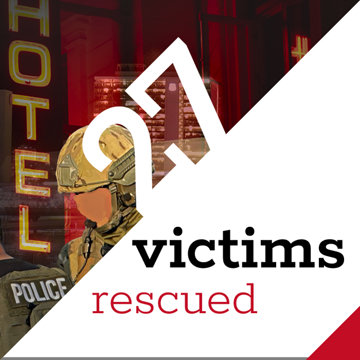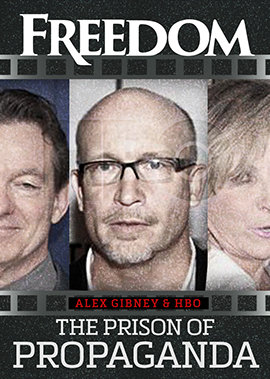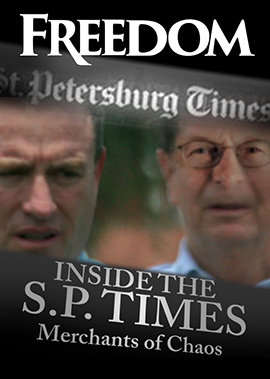Highlighting the hidden dangers lurking behind hotel doors and the urgent need for industry vigilance, the law enforcement officers rescued 27 victims—10 of them children under age 12—forced into dangerous labor, sexual exploitation and abject living conditions at the hotels, which included the AmericInn in Omaha and the Rodeway Inn in Bellevue.
Reports described victims sleeping on cockroach-infested floors and enduring dire and unsanitary conditions.
Far from just another roundup of trafficking suspects, the law enforcement operation, dubbed “Operation Summer Heat,” starkly illuminates how hotels and motels can serve as both refuge and prison. According to data from Polaris, a nonprofit organization devoted to combating human trafficking and supporting survivors, a staggering 80 percent of commercial sex occurs in hotels, and 20 percent of traffickers house victims there.
An analysis of records found 3,596 hotline reports involving hotels—including widespread sex acts facilitated on premises. These are the usual settings that offer anonymity, transient traffic and cash transactions—elements that traffickers exploit—making the Nebraska bust emblematic of broader, deeply rooted vulnerabilities in the hospitality sector.

The FBI and its partners—including the Department of Homeland Security (DHS), the Internal Revenue Service, the US Marshals, and state and local police—executed search warrants across hotels and brow and lash salons in Westroads Mall and elsewhere. They freed 10 child victims and 17 adults trapped in systems of forced labor and exploitation. Reports described victims sleeping on cockroach-infested floors and enduring dire and unsanitary conditions.
The defendants allegedly enabled sex trafficking—not just tolerating it, but facilitating, encouraging and shielding it from law enforcement. They also allowed rooms to be used for drug activity: One hotel kept Narcan—a brand name for the drug naloxone, used to reverse opioid overdoses—on the front desk, and a stairwell piled with used syringes.
This brazenly squalid tableau was layered with schemes to defraud US immigration law. One hotel reportedly staged a fake robbery to assist in obtaining a U visa—a form of temporary immigration relief granted to victims of certain crimes in the US who have suffered significant physical or psychological harm and who assist law enforcement in investigating or prosecuting those crimes. Others helped procure fraudulent driver’s licenses for around $1,000 each.
US Attorney Lesley A. Woods summoned the gravest moral outrage possible: “There is no evil greater than the evil that seeks to trap, oppress and exploit human beings for profit or pleasure.” FBI Special Agent in Charge Eugene Kowel called it “modern-day slavery,” a trafficking scheme that forced victims to live and work in “dangerous and filthy conditions … with little to no pay.” Mark Zito, a special agent with Homeland Security Investigations at DHS, added that these traffickers “hide in the shadows, prey on the vulnerable and show no regard for the laws or values of our nation.”
The operation was sparked in part by calls from concerned citizens to human trafficking hotlines—a testament to the power of tip-line witnesses. Authorities confirmed links to a January 2025 bust at the same AmericInn: Six suspects were previously indicted for sex trafficking of minors.
While Operation Summer Heat exposes horrific failure on the part of hotel operators, some have taken preventive steps. Marriott, for example, partnered with Polaris and PACT (Protect All Children from Trafficking) to train over 1 million of its employees to recognize and report human trafficking indicators. DHS also offers toolkits aimed at equipping hotel staff with knowledge of trafficking signs—like malnourished guests, lack of ID, inappropriate interactions or restricted freedom of movement.
Yet much remains to be done: Studies show typical indicators are widely missed, and the commercial hospitality setting remains a breeding ground of trafficking opportunity.
As dawn broke across Nebraska that August morning, it wasn’t just a trafficker haul but a vivid exposure of how “innocent” facades cloak deprivation and despair. The hotels that once stood as stations for profiteering exploitation now face a reckoning, as do the broader systems that allowed them to operate: With the traffickers in cuffs and victims liberated, attention turns to reconstructing safety and accountability in motel corridors and cash-paying front desks. If communities and industry leaders step beyond reactive raids and embrace prevention, the lights on those hotel doors may truly signal refuge—not a trap.
Meanwhile, as Nebraska law enforcement and federal partners continue to pursue justice, the key test lies in whether lessons from “Summer Heat” kindle lasting vigilance—or simply let the embers go cold.






















